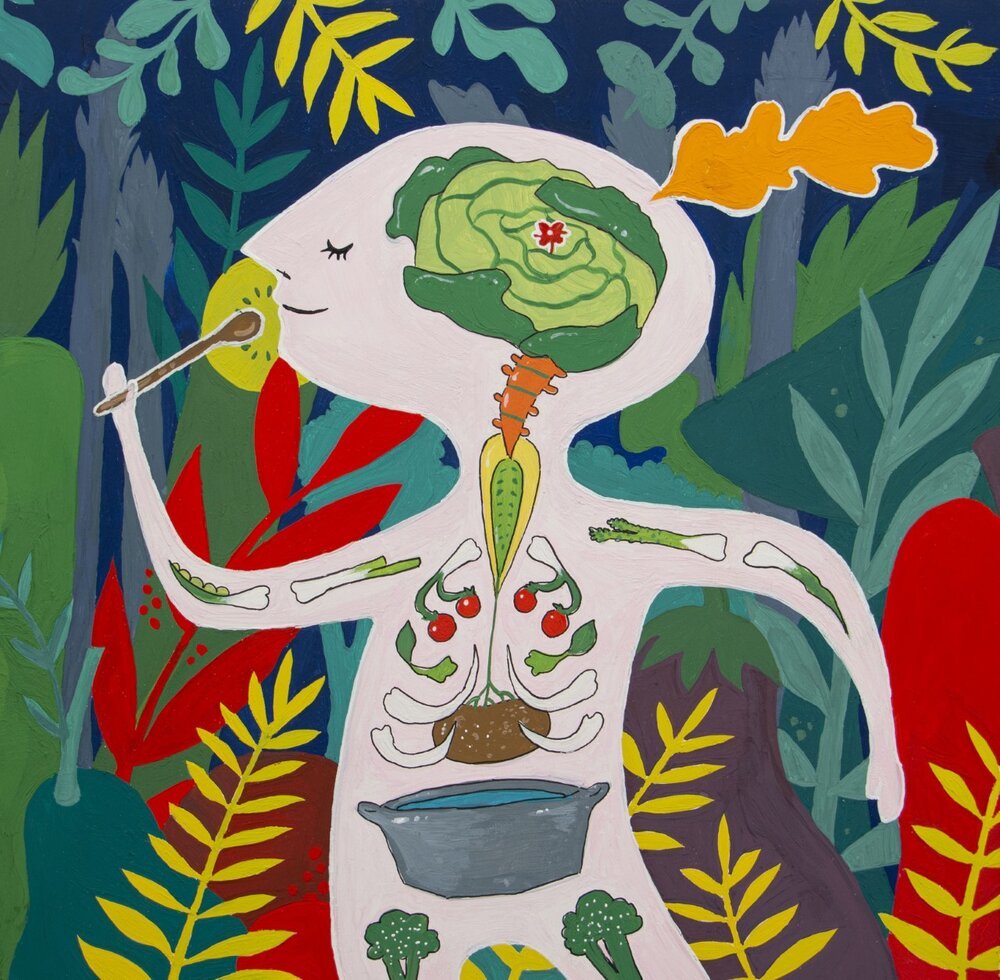
Resources
Art by Tenzin Tsering (Tenzoni)
Eco-anxiety
The American Psychology Association defines eco-anxiety as “the chronic fear of environmental cataclysm that comes from observing the seemingly irrevocable impact of climate change and the associated concern for one's future and that of next generations”. It has become a catch-all phrase for a range of emotions including grief, anger, frustration related to the environmental and climate crises.
Solastalgia
Solastalgia was coined by the philosopher Glenn Albrecht as "the homesickness you have when you are still at home" and refers to the distress produced by negative environmental change among people who identify with and are directly connected to their home environment. These emotions are exacerbated by their feelings of powerlessness and a lack of control over decision-making processes regarding the change.
Climate Distress
Climate Distress is an emerging term that casts a wide net across all negative emotions around climate change and refers to a range of emotional intensity from discomfort to chronic distress. It attempts to incorporate other popular terms including ecological grief, described by researcher Ashlee Cunsolo; existential distress as articulated in palliative care; and pain for the world, the concept framework developed by Joanna Macy.
Inner Resilience
The American Psychological Association (APA) defines psychological or inner resilience as the process and outcome of successfully adapting to difficult or challenging life experiences, especially through mental, emotional, and behavioral flexibility and adjustment to external and internal demands. Inner resilience can look very different depending on culture, race, gender and other variables.
Community Resilience
Community resilience is traditionally seen as the sustained ability of a community to utilize available resources (food, energy, transportation, etc.) to respond to, withstand, & recover from adverse situations. More recent scholarship indicates that measuring a community’s sustained ability merely is not sufficient and must including existing conditions within the community as well.
Planetary Resilience
Ecological or planetary resilience refers to the innate ability of ecosystems to “bounce back” and maintain regular functions (nutrient cycling, biomass production, etc.) after suffering damage caused by a threat or disturbance. This kind of resilience requires that ecological systems are not individual isolated entities but complex units and varying wholes that are in constant fluid relationship.
Intersectionality
Coined by Dr. Kimberlé Crenshaw in 1989, intersectionality is a framework that demonstrates how our various identities change our relationship with power & privilege and must be acknowledged in their totality. The point of intersectionality is not to reverse the current power structure where women of color come on top and white men go in the bottom but rather to create egality among all identities.
Indigenization
Unlike decolonization, Indigenization begins by centering and affirming Indigenous worldview and values and is seen as reverting to precolonial ways of being and postcolonial ways of survival. Authentic Indigenization requires a meaningful transformation of current power systems to embrace local Indigeneity as an organizing principle (for example, land back vs land acknowledgement).
Climate Justice
Climate justice begins with the acknowledgment that climate change is disproportionately impacting nations in the Global South and marginalized communities everywhere, specifically populations that are not historically responsible for creating the causes of climate change. It is a civil rights movement that demands that all mitigation & adaptation strategies right these wrongs and address these inequities.

Subscribe to the Loka Newsletter
Subscribe to the Loka Newsletter









